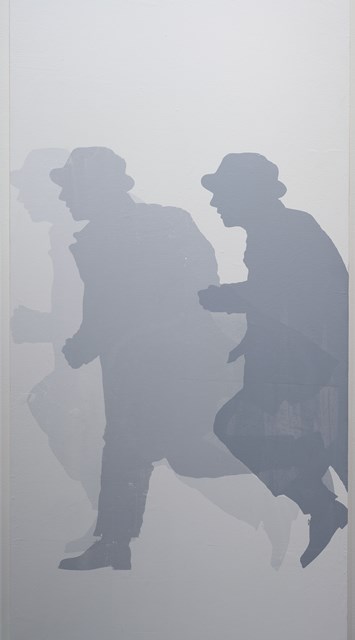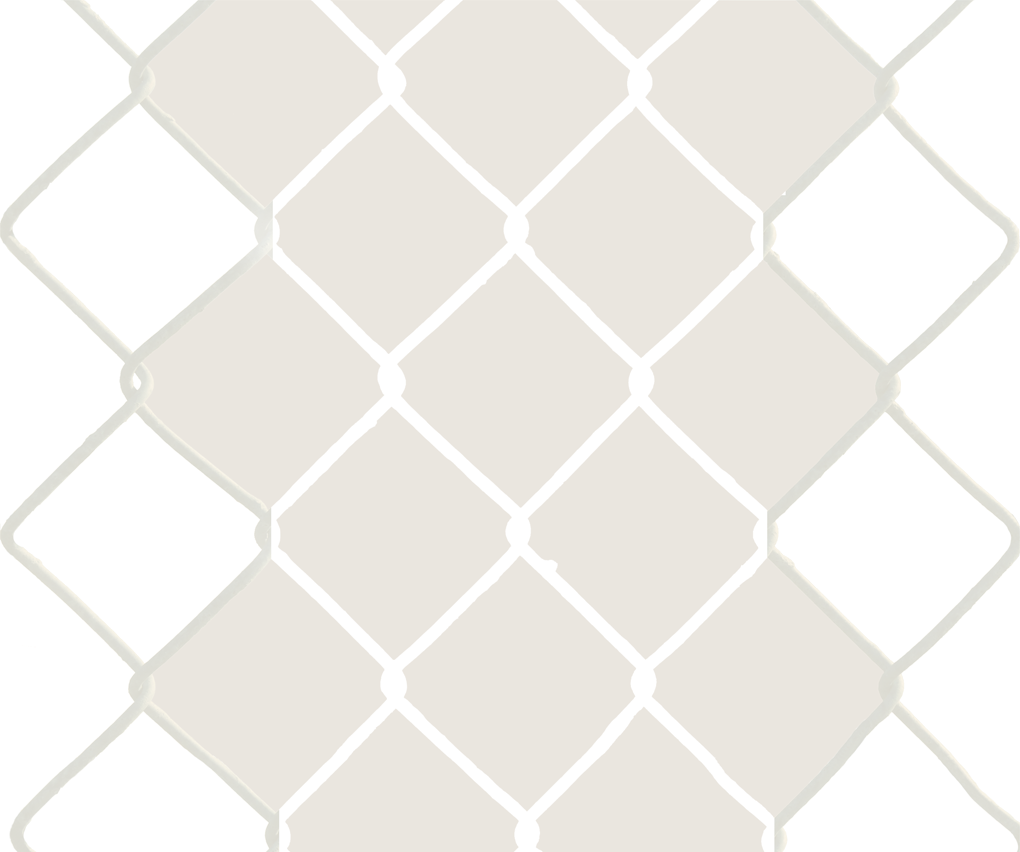Matthew Zacharias: ARE YOU A MAN
17 January - 28 February 2015
Re:View Contemporary Gallery
Simone DeSousa, gallerist
444 West Willis, #112
Detroit, Michigan 48201
 |
Matthew Zacharias
Childhood, Boyhood, Sonic Youth No. 6', 2015
Dimensions: 7' x 2'
|
A blizzard whips through the forest dense with trees. Thick, snowy sticks. Rooted, solid, stable, immune to wind. Kip trudges through the storm, blinking. Sleet stings his eyes, seeps under his lids. No food since early this morning; oatmeal from Cook in a cup. He could have had more but no time to wait in Seconds Line. I was in a hurry he considers now; stomach grumbling, gloved-hand pressing his lips.
Didn’t expect to get so hungry, and I could have asked for more oatmeal in a bowl, or even a plate of toast, he mutters, licking chapped lips. What use is rushing when I cut myself short? I would move quicker now, be more efficient, maybe warm and inside that house by now if I had eaten something that stuck. But I had to get out of that place, its smells, staff, food and shower lines. Ok: shift gears; divert from discomfort—from thinking things unproductive—appreciate the sound of wind. It is music, a kind of symphony, and I am thirsty. He stops, leans against a tree, unscrews his canteen, drinks from its cup. Dehydration is more dangerous than hunger.
He pulls down his hat to the top of his eyelids. Snow pounds his back, neck, cheeks, lips. He removes gloves (frozen, useless for warmth), forms his hands into a cup. Blows and blows, attempting to generate heat, enough to stick. Blow, he tells himself, blow as hard as this wind. If this does not keep me warm it might, at least, keep me safe, focused, in line.
Kip hopes he heads in the right direction; he is optimistic because of long, careful, hours spent mapping possible direction lines. Now he is so tired and sore: lungs hurt, legs lag, eyelids droop. There is a new ferocity to this wind. He leans against a tree, tastes blood on his lips. Starts getting mad, soon swells with anger. Let it out, get rid of this boiling feeling. Through the snow he sees a stick. Grips it, pulls, holds like a sword, screams. Whacks the tree hard, repeatedly, mentally turning its massive trunk into tiny, porcelain cups.
At home, Mom serves tea in sturdy cups. Not like his sister’s dollhouse ones, with delicate lines. But large vessels, filled with tea, sugar, milk, served with muffins, bread, jam; not quite a meal but a snack that sticks. Momʼs mugs have lids. This means they stay warm, if you need to go to the bathroom or do a chore you can return to your tea, warm on your lips. Thinking of Mom reminds him of the day things turn, and how she predicts a dark future that morning, on Race Day, when she wakes, leans out her window, senses a peculiar wind.
The kind that signals trouble, and indeed, trouble comes. The day he loses his first race, to his cousin. During the run, Kip, champion sprinter, winner of five previous Town Running Cups, gets abruptly, unaccountably, winded. It just comes from nowhere, this breakdown. His body revolts: he loses breath, use of his legs and cannot not stop snot from shooting out of his nose, covering his lips. Cannot not keep his eyes open, his focus, mental discipline, what he refers to as his drill lid. His parents call the doctor, then there are trips to hospitals. They learn he has a rare, illness; they learn he must receive treatment. They research, find this center, this place in the woods; learn he must stay away from friends and family (healthy people) in order to heal.
Heal in an isolated place, with swarms of staff supervising patients spitting, puking into bowls and cups. The staff instructs him to follow the procedures and rules they give him precisely, or their treatment (it is cutting edge) will not stick.
Kip follows their regime carefully, yet, yet, despite this obedience, he does not improve; he always hurts; there is pain in his shoulders, knees, lips, eyelids, skull, ankles, groin; sharp pain, as if he had been beaten by a stick. Nothing helps: not listening to the wind, not saying prayers, not reciting favorite song lines, not sipping blessed water from an institutional cup.
The intensity of what feels like swords, pokers, needles, sticking him everywhere crosses a line, so he leaves. He plans to run, run, run, until his lungs give out or until he finds that little safe house surrounded by trees with a smoky chimney he remembers seeing from his parents’ station wagon on his first visit, and from the institutional van on his second to this place. If he cannot find the dwelling, he will run until he falls into the bosom of this blizzard, soothed by the fact he is away from that building (its smelly beds, embarrassing night robes and day suits, gooey food) and away from the medical tables nurses make him lie down on so the doctors can apply their specific procedures, he is away from there, and on his way somewhere better.
|




